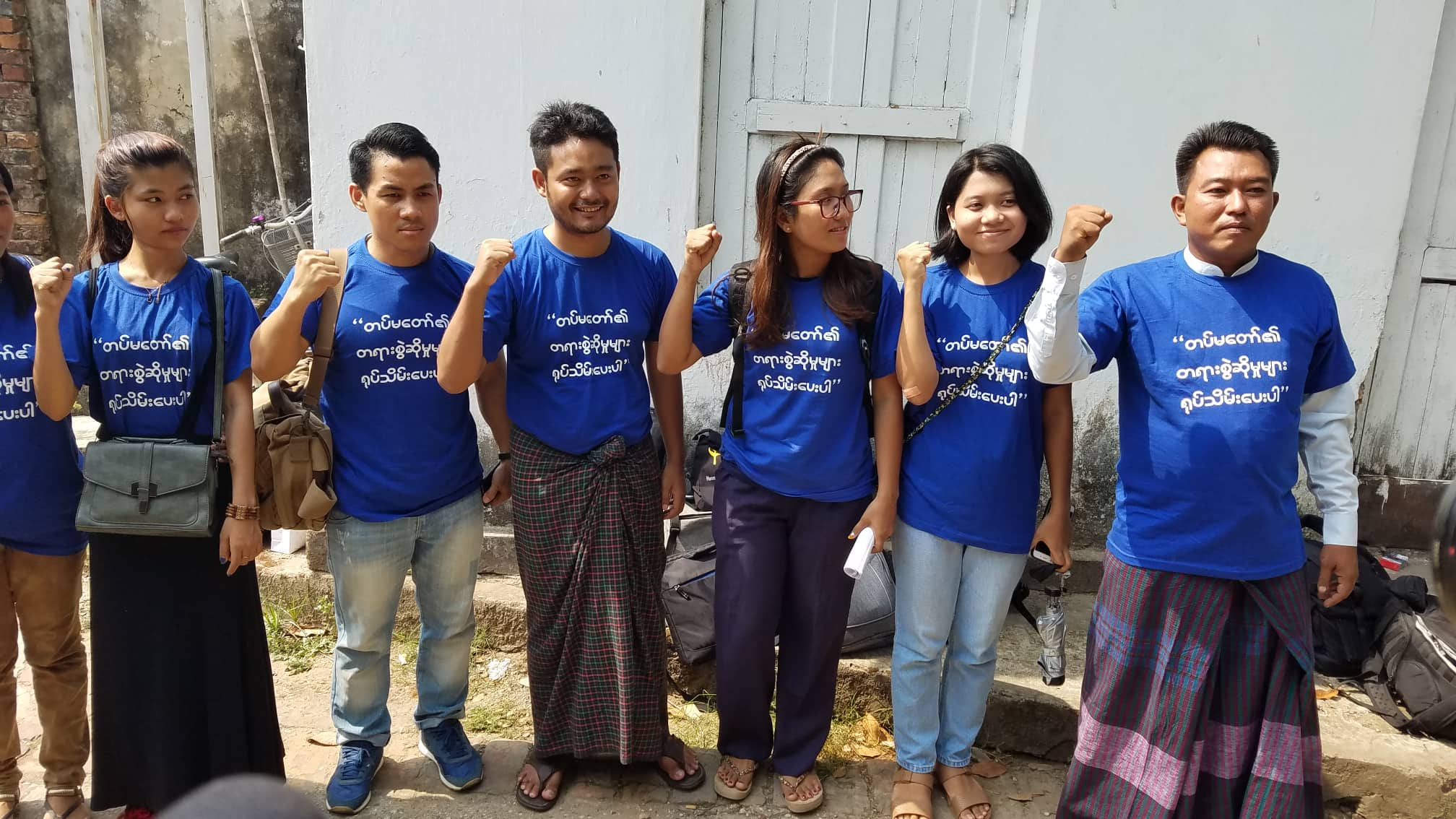
More than a year after they were charged, 17 activists have attended their 34th court session for their role in an anti-war protest.
Supporting them outside Yangon’s Bahan township court on Friday were about a dozen blue t-shirted campaigners, an increasingly familiar sight at trials straining the development of free speech and assembly.
On May 12, 2018 the defendants were at Tarmwe junction, protesting a Myanmar Army offensive against Kachin rebels that forced thousands to flee their homes.
Riot police broke up the 200-strong rally, which activists say was harassed by plain-clothed policeman and hardline nationalists.
In state media, police denied beating the protesters and said they were detained in accordance with the law.
The defendants were taken to Bahan police station and charged under section 20 of the Peaceful Assembly and Procession Law, which carries a maximum one-month prison sentence and a 10,000 kyats fine.
Among them are Saung Kha of free speech group Athan, Moe Thway of pro-democracy youth group Generation Wave, Khin Sandar of legal support NGO Justice Base, and Lin Htet Naing of education centre the Wings Institute.
“The trial is close to the end,” Ye Wai, a co-founder of Athan, told Myanmar Mix. “The police have sent many witnesses, but now they are almost out of them.”
The next hearing is scheduled at Bahan township court on June 7.
“According to the law, we can’t protest in the court compound, so we wear these blue shirts as a silent protest,” said Ye Wai.
The colour is a show of solidarity for political prisoners who are issued the standard blue prison shirts.
Meanwhile, research group Progressive Voice reported that at least 30 more protesters in Mandalay, Myitkyina, and Bago region’s Pyay township were charged for their role in similar peaceful rallies.
Organisers of the Yangon rally had notified authorities of their intention to hold a peaceful protest, but police denied them permission.
The prosecution is also citing a ban on protests covering 11 Yangon townships imposed ahead of Pope Francis’s visit to the city in November 2017, explained one of the defendants, Saung Kha.
Despite the protest being held six months after the visit, police say the ban was still active. Not all rallies have been banned, however; pro-military demonstrations have been allowed in downtown Yangon during the same time period.
Other free speech cases that the activists are supporting in the #BlueShirtCampaign include satirical performers, a monk, and Ko Swe Win, the editor of news outlet Myanmar Now.
A Mandalay-based supporter of ultranationalist monk U Wirathu opened a defamation case against the journalist in March 2017—and since then, Ko Swe Win has been forced to travel from Yangon to Mandalay at least twice per month for hearings.

